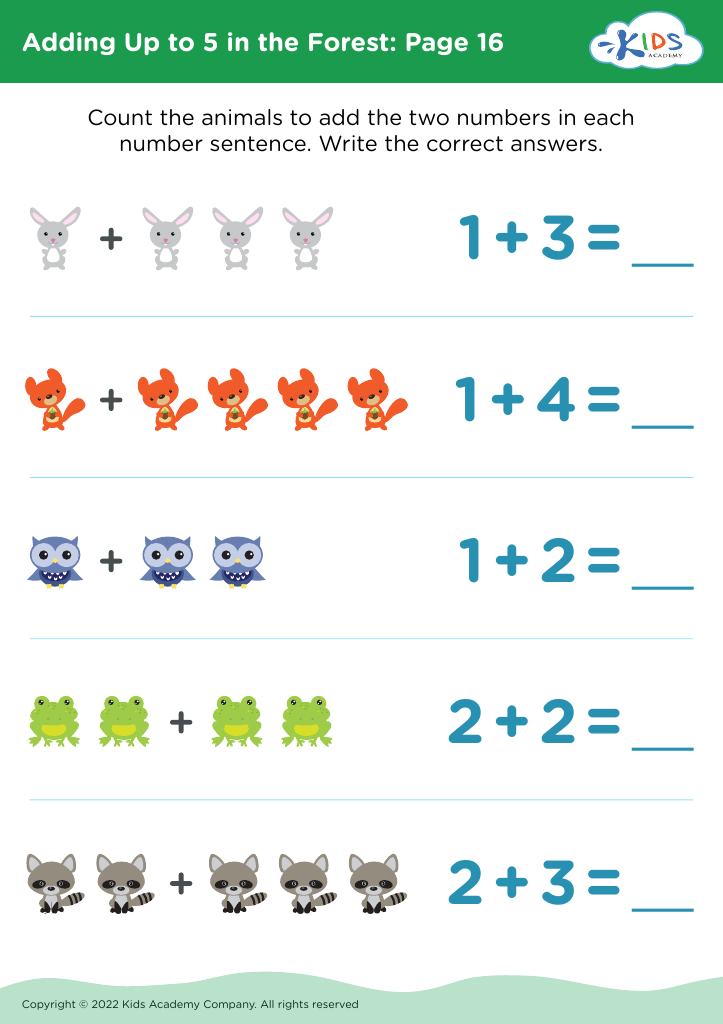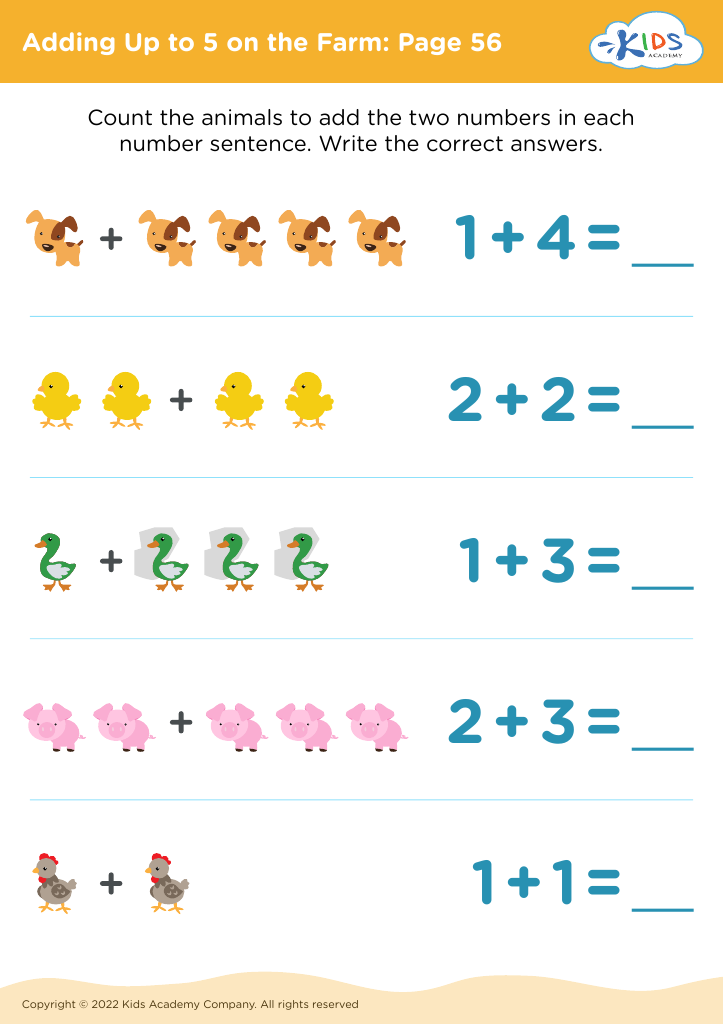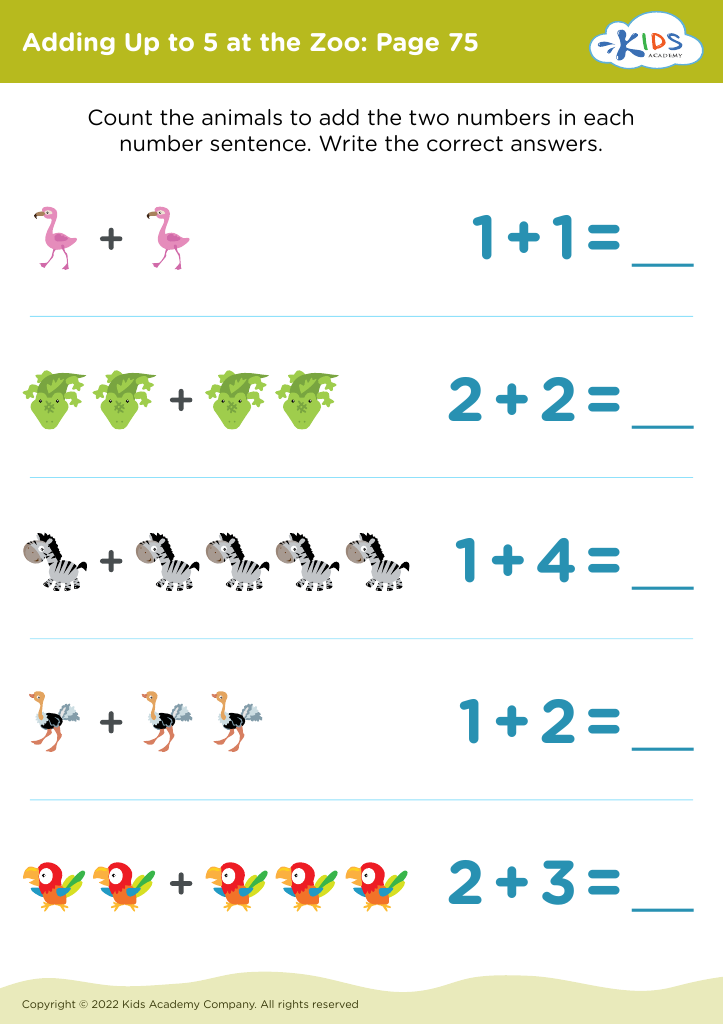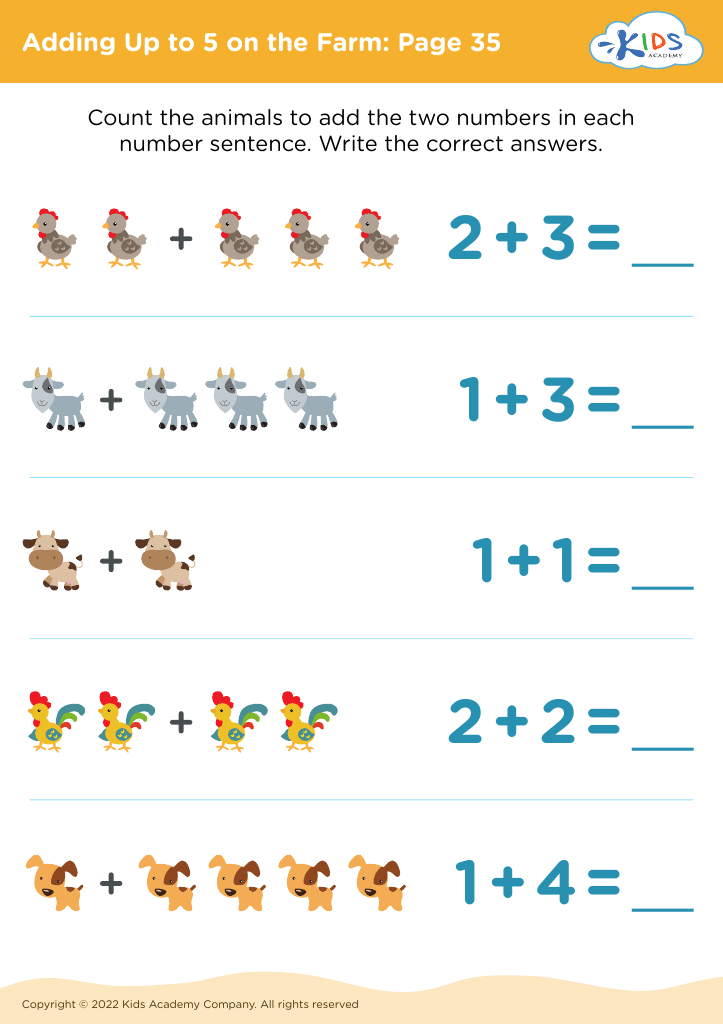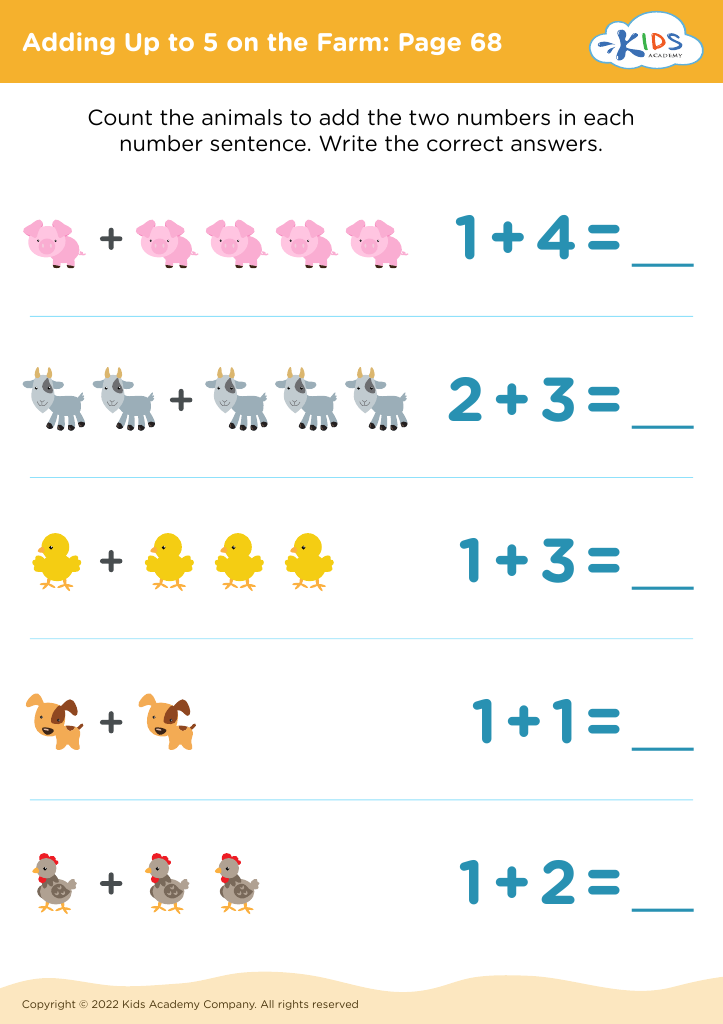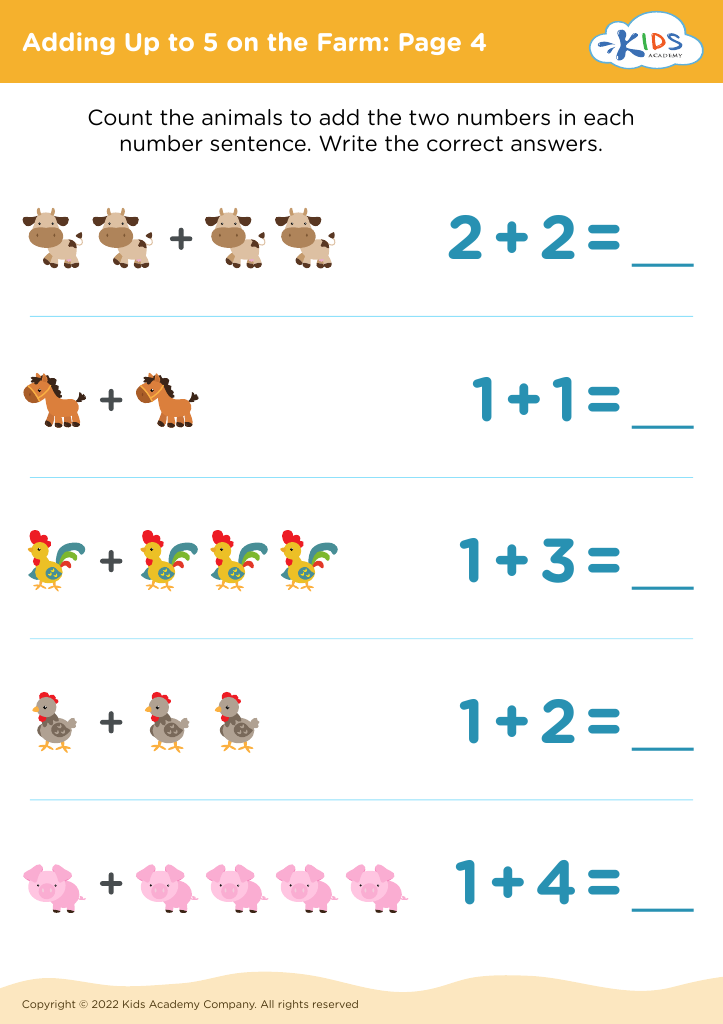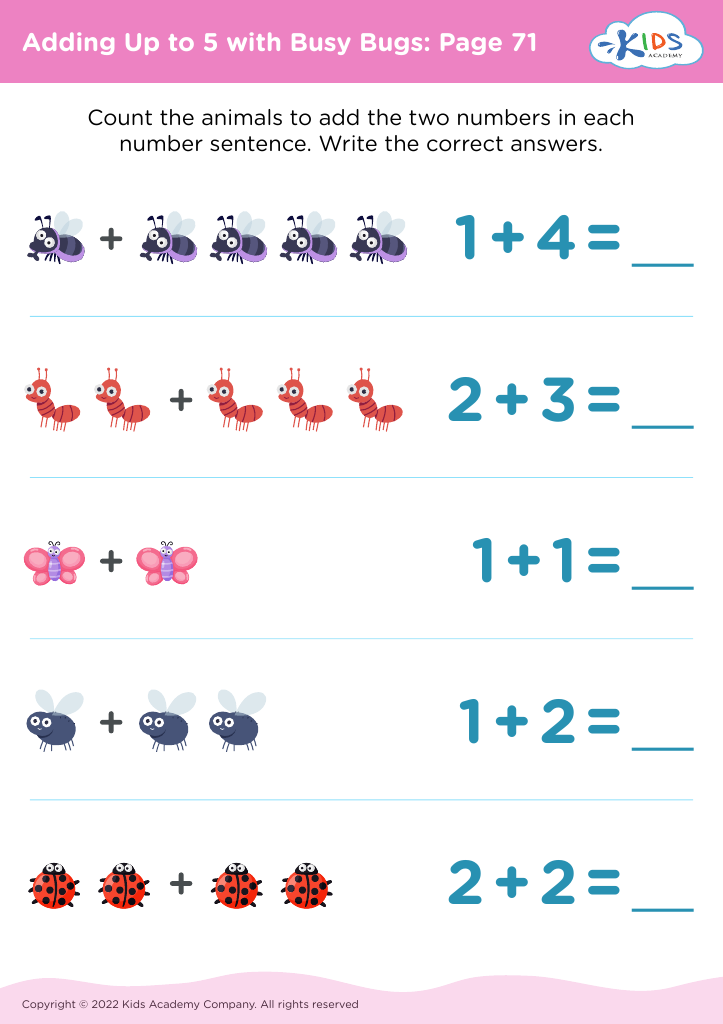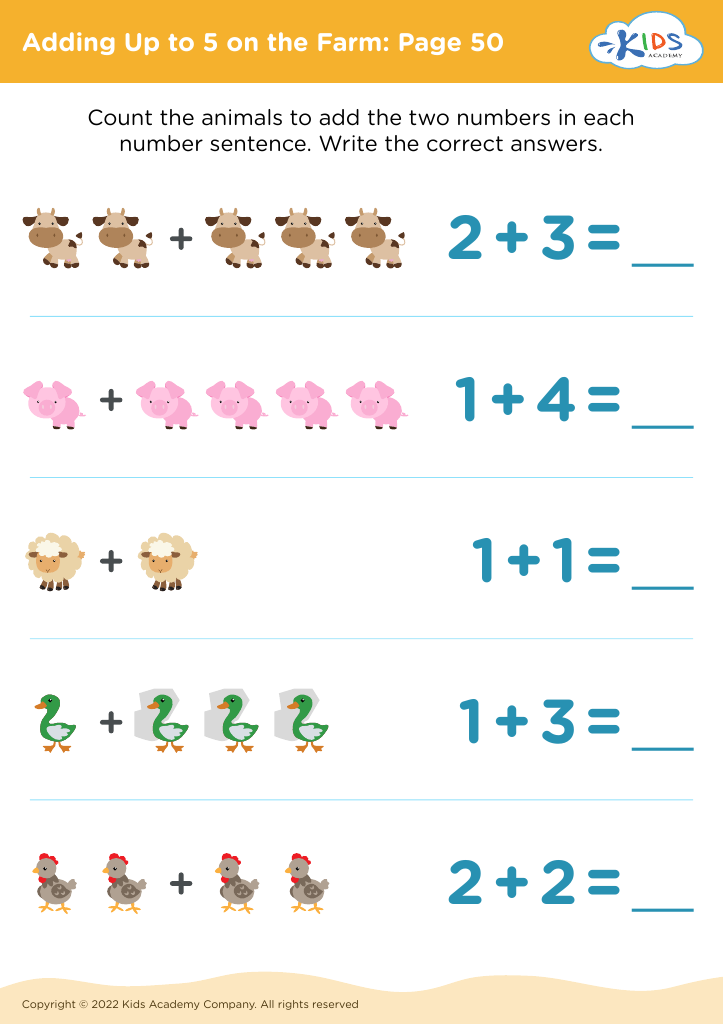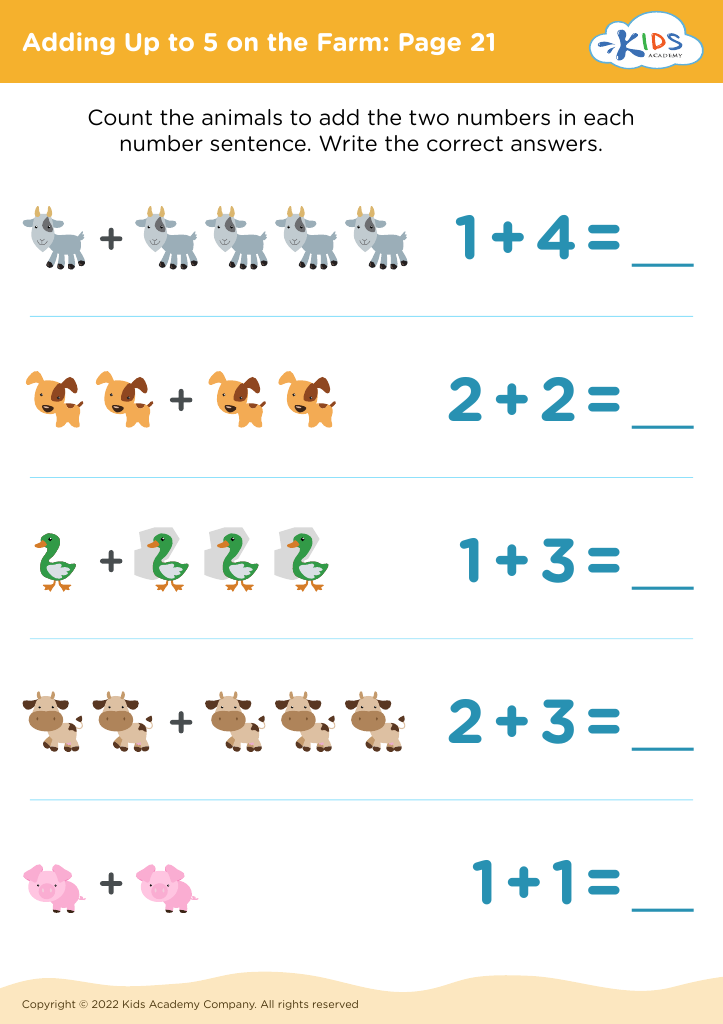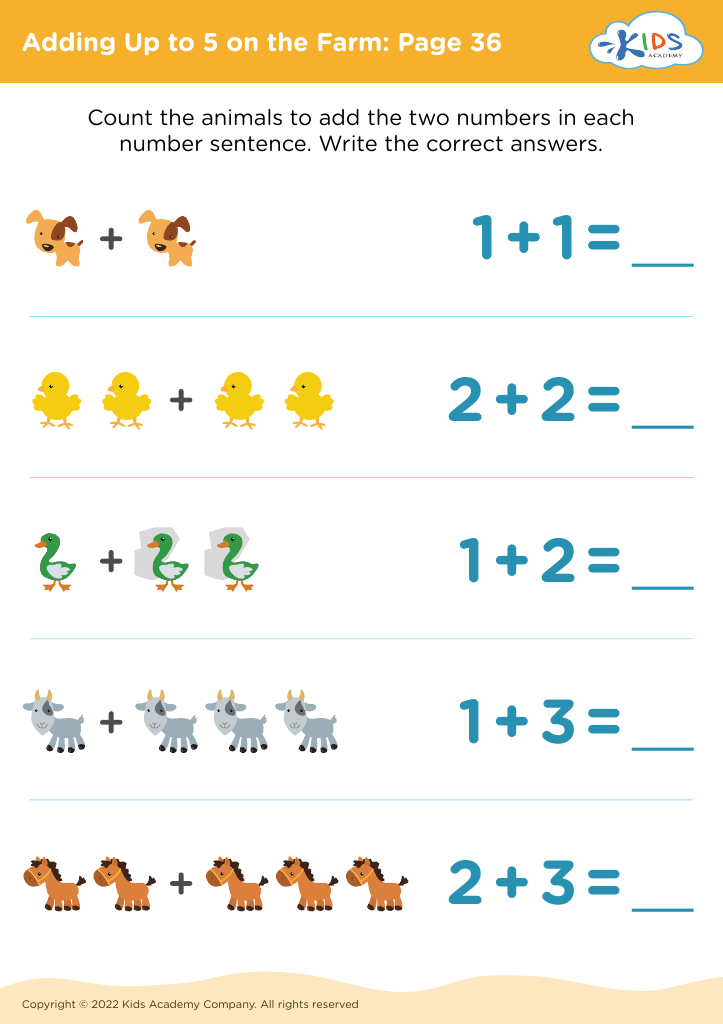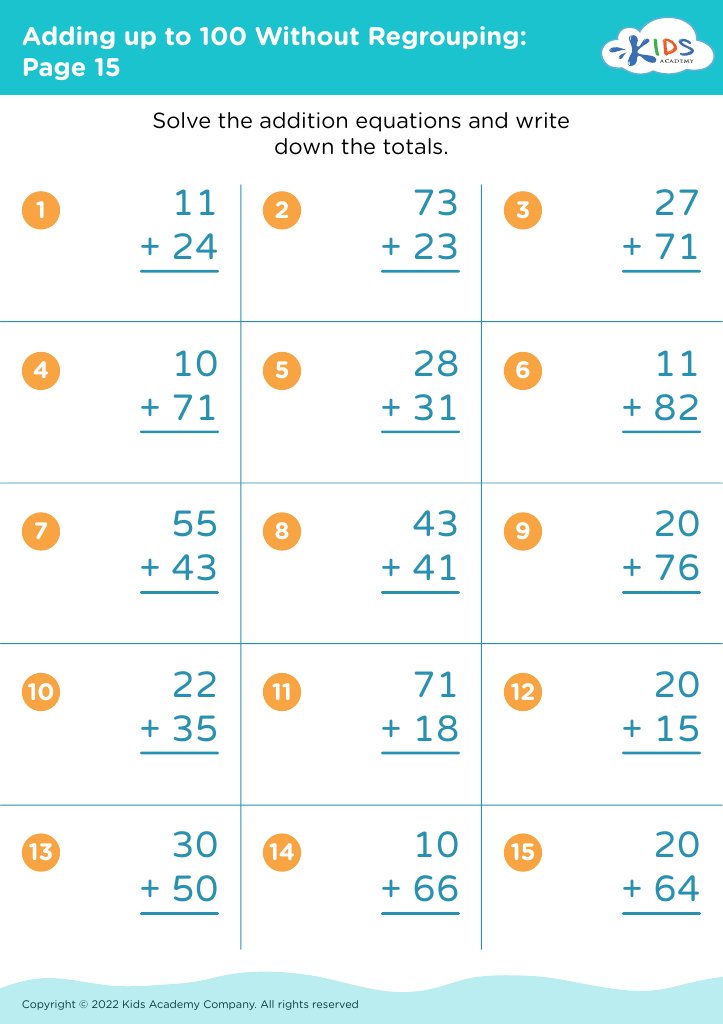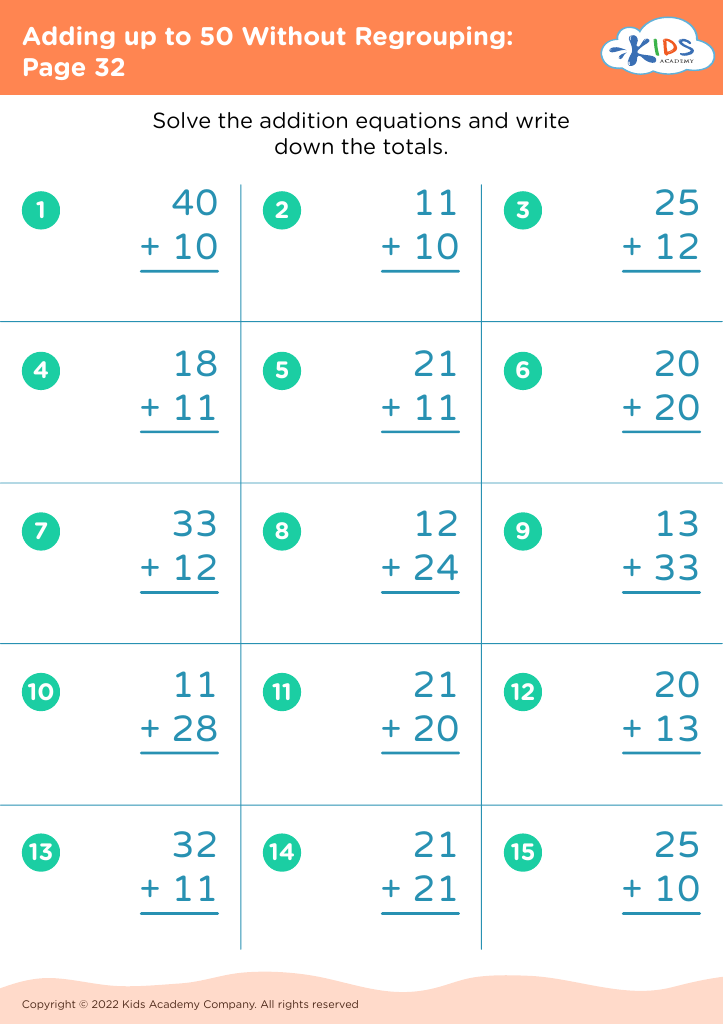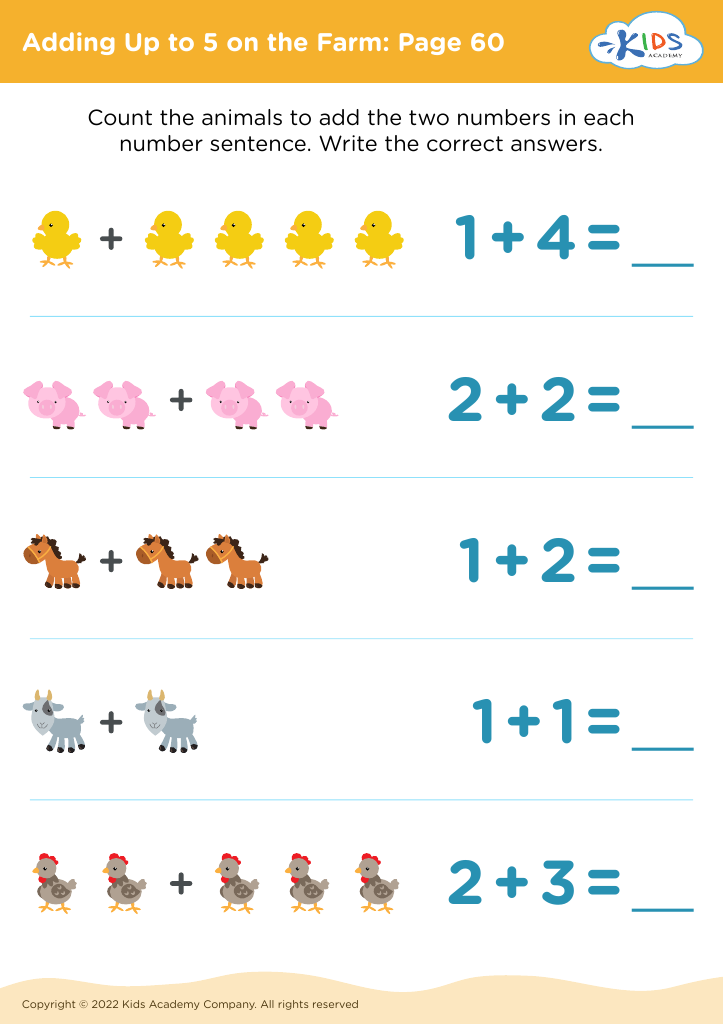Counting objects Addition Worksheets
19 filtered results
-
From - To
Introduce young learners to the basics of math with our Counting Objects Addition Worksheets. Designed for children from preschool to first grade, these worksheets offer hands-on practice for adding up to 20. Each worksheet features captivating images and simple equations to make learning fun and engaging. Perfect for kids new to addition, these sheets encourage counting and visual learning, building a strong foundation for future math skills. Download and print today to give your child the resources they need for a confident start in their math journey, both in the classroom and at home.
Counting objects and mastering addition are fundamental skills that form the foundation for more advanced mathematical concepts. Parents and teachers should deeply care about these skills because they play a critical role in a child's cognitive development.
First, counting objects helps children understand the concept of quantity and numbers. It transitions abstract numbers into tangible entities, making them more comprehensible. Knowing how to count objects accurately also sets the stage for developing strong number sense, an essential component for all future math learning.
Addition builds upon counting and facilitates problem-solving abilities. By learning how to add, children acquire a method for combining quantities which is a daily life skill. Proficiency in addition supports success in increasingly complex math topics, such as multiplication, fractions, and algebra.
Furthermore, early success in counting and addition boosts a child's confidence in their mathematical abilities. This positive reinforcement encourages a proactive attitude toward learning and problem-solving, essential traits for lifelong learning and adaptability.
Lastly, these early math skills are critical in achieving proficiency in standardized education benchmarks and assessments. Parents and teachers who actively engage children in counting and addition empower them to meet and exceed academic expectations, setting the stage for future success across varied disciplines.
